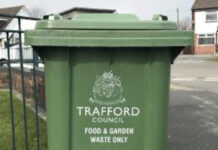Worries about housing costs have hit the highest levels ever recorded by Which?’s Consumer Insight Tracker, as interest rates are widely expected to rise further.
Which?’s latest Consumer Insight Tracker recorded highest levels of concern around housing costs – with 4 in 5 mortgage owners (79%) and 4 in 5 renters (81%) saying that they were worried about housing costs. The consumer champion has been recording housing cost worries since 2013.
There has been a steady increase in housing cost concern amongst renters over the past two years, with six in 10 (62%) saying they were concerned in August 2021.
Worries about housing costs have risen even faster for mortgage holders due to high interest rates. Before December 2021 – when the interest rate hikes began – around half of mortgage holders were worried about housing costs compared to 4 in 5 in the month to August 10th 2023.
Despite this rise in worry, the number of people missing housing payments has not risen this month. An estimated 630,000 households missed a mortgage or rental payment in the month to August 10th this year.
Worryingly, 2.2 million households missed or defaulted on an essential payment – such as a housing, bill, loan or credit card payment – in the month to August 10th.
Of these missed payments, 1.4 million households missed or defaulted on a household bill payment. Water, council tax and energy were the most commonly missed household bills. Of those who missed a household bill payment, half (50%) missed a council tax bill, almost half (46%) missed a water bill and four in 10 (48%) missed an energy bill.
Worryingly, two-thirds (61%) of those who missed a household bill payment reported that they missed more than one.
Over half (56%) of households reported making at least one adjustment – such as cutting back on essentials, dipping into savings, selling possessions or borrowing – to cover essential spending such as utility bills, housing costs, groceries, school supplies and medicines in the last month. This equates to an estimated 15.8 million households.
Adjustments include cutting back on essentials, dipping into savings, selling possessions or borrowing. This is slightly down from the higher level seen last month (59%), but is still much higher than the 40 per cent seen two years ago.
With the Bank of England widely expected to raise interest rates again on 21st September, pressures on household finances will only continue. If people are missing or struggling to afford essential payments – such as mortgage, energy, credit card payments – then they should speak to their provider immediately for help or seek free debt advice if they are struggling with multiple payments.
Which? is also running a campaign calling on essential businesses – energy firms, broadband providers and supermarkets – to do more to help consumers struggling to make ends meet and ensure they are providing value for money.
Rocio Concha, Which? Director of Policy and Advocacy, said:
“Although UK inflation is slowly starting to fall, these record levels of worry about housing costs and the looming threat of higher interest rates later this month shows that for many people, the cost of living crisis is far from over. We’d encourage anyone who’s struggling to seek free debt advice and reach out to their mortgage provider or landlord for help.
“As so many people face financial hardship, Which? is calling on businesses in essential sectors like food, energy and telecoms providers to do more to help customers get a good deal and avoid unnecessary or unfair costs and charges during this crisis.”







